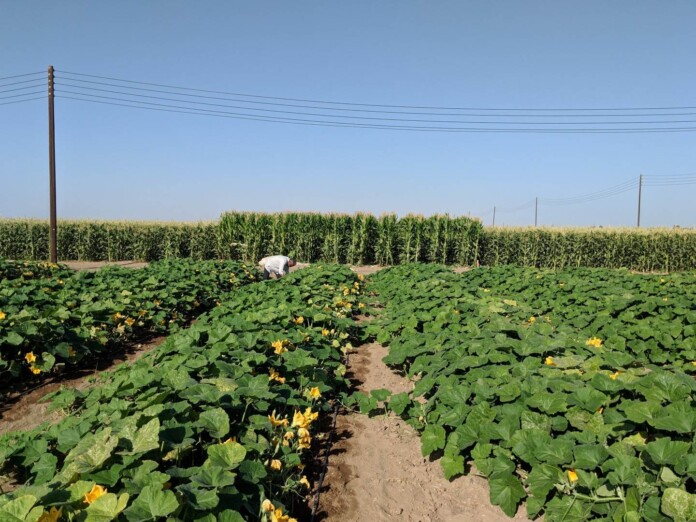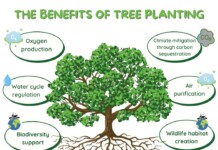In a free-wheeling chat with Benedict Paramanand, Editor of SustainabilityNext, Sanjay Borkar, co-founder of the Pune-based FarmERP, delves deep into how his company is working with large commercial farms to improve their 3Ps using latest technology.
To start, could you share the three key transitions FarmERP has undergone since its inception?
FarmERP is now almost 27 years old. It’s always been an IT company, founded by Santosh and me. We are both Computer Engineering graduates from the University of Pune. Initially, we worked on various technological applications for industries.
Coming from farming families, we had a passion for agriculture. In 2001, we got an opportunity to work with the Department of Agriculture, Maharashtra state. We built multimedia content which introduced us to the agricultural field. It connected us with agricultural experts, agriculturists, farmers, and farming associations. That’s how our journey in agriculture began.
So, your strong foundation in the tech industry led you to focus on the agricultural sector?
Yes, exactly. Farming was largely neglected by technology. We believed that introducing technology into farming would enhance productivity and profitability. That was our initial purpose. Eventually, we thought about developing software because creating content alone wasn’t enough. We realized the potential of quality certification, like the European CAP, to introduce quality in farming through software. That marked the beginning of our focus on software solutions.
From software, you then moved to ERP, and now to machine learning and AI. It’s quite a journey. How has the experience been?
It’s been thrilling to use cutting-edge technologies to solve problems in agriculture. Transitioning from developing software for farmers to creating an ERP system was a significant challenge. We serve farms of varying sizes, and their requirements differ greatly. Integrating a basic business layer into ERP, and then adding intelligence to it with AI and machine learning, made the process even more interesting. Our focus has always been on the three Ps: profitability, productivity, and predictability.
Considering the productivity challenges in Indian agriculture compared to countries like China, do you face similar challenges with large farms?
The challenge for large farms is indeed bigger due to the higher risks involved with managing larger land areas, inputs, labour, and machinery. However, these farms can be more organized and are usually more open to using technology, which aids in addressing these challenges.
And your platform focuses on B2B, serving corporate farms and not individual farmers directly?
Correct, we are a B2B platform. We serve plantations and farms, contract farming companies, and exporters. Working with smaller farmers indirectly through enterprises allows us to address different challenges, including those related to technology adoption and investment capacity.
On improving productivity in India, what are the key areas to focus on?
Improving soil health is paramount. Adopting regenerative practices and enhancing farm circularity are crucial for sustainable productivity. Managing the various factors affecting productivity is essential, and while not all can be controlled, the majority can be managed effectively.
Do you work with countries like Israel, known for their high productivity in agriculture?
While we don’t work directly with Israeli companies, our clients span 30 countries, including a notable example in Azerbaijan with 80,000 acres of farmland. Our solutions have helped increase their productivity significantly over the last five years.
With AI being a hot topic, how is it being integrated into the farming sector?
We’re just at the initial stages of integrating AI in agriculture. There are many challenges to address and problems to solve. For example, optimizing crop water requirements involves analyzing numerous data points to make precise irrigation recommendations. Similarly, pest and disease detection requires extensive data to achieve high accuracy in diagnosis and treatment.
Have you developed these technologies in-house, or do you integrate external solutions?
FarmERP is primarily an ERP platform, but we’ve added an agricultural intelligence layer called FarmGyan. It utilizes artificial intelligence and deep learning technologies to provide advisories on climate, water requirements, nutrition, pests, and diseases. We’ve also developed solutions for plant counting and raw material assessment, among others, in-house to address specific agricultural challenges.
Would you say FarmERP is unique in the global market, and is FarmERP planning to cater to micro to mid-level farms soon?
I believe we are one of the unique companies in this space. There aren’t many players in agricultural ERP, but we are among the top, offering a complete suite from Farm to Fork, including traceability. Additionally, FarmERP is already SAAS-based, and we are indeed looking to expand our services to micro and mid-level farms, potentially starting in 2025.
How does FarmERP differentiate from earlier models like e-Choupal, especially since it was providing free information to farmers?
E-Choupal focused on procuring from farmers and giving them some advice. FarmERP offers an end-to-end solution, not just advisories but also managing the entire operational flow from procurement to consumer, including traceability. This holistic approach sets us apart and caters to a broader range of companies’ needs.
Lastly, what’s your vision for FarmERP over the next five years?
The future of FarmERP involves enhancing predictability through AI and machine learning, addressing climate change, and integrating sustainability and carbon reporting into our ERP solutions. We’re focusing on solving these significant challenges and driving forward with technology.
Watch Full interview – https://youtu.be/i9gWkKVKPHU











